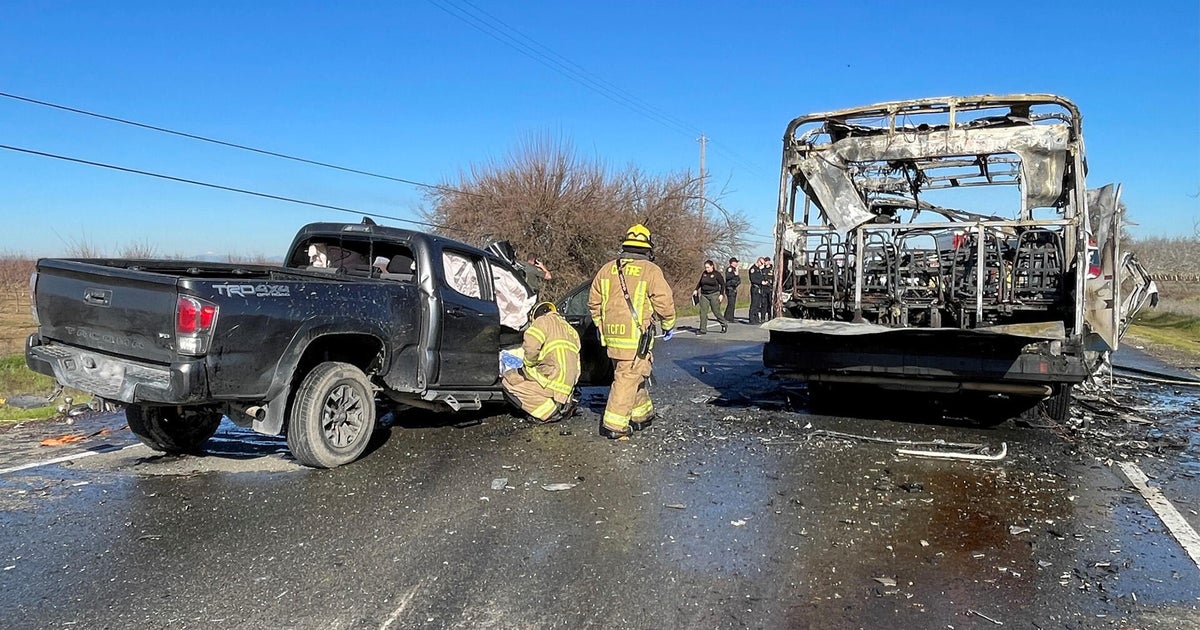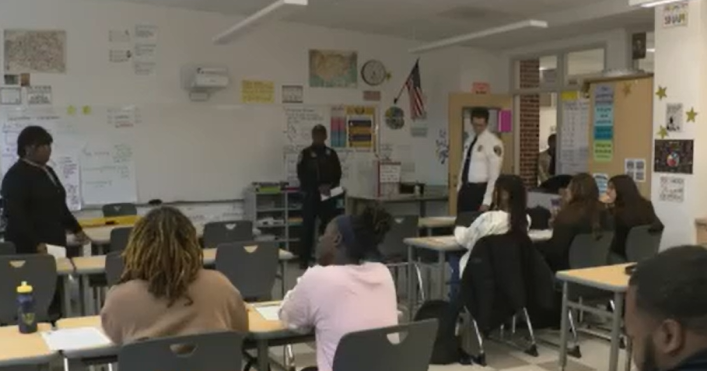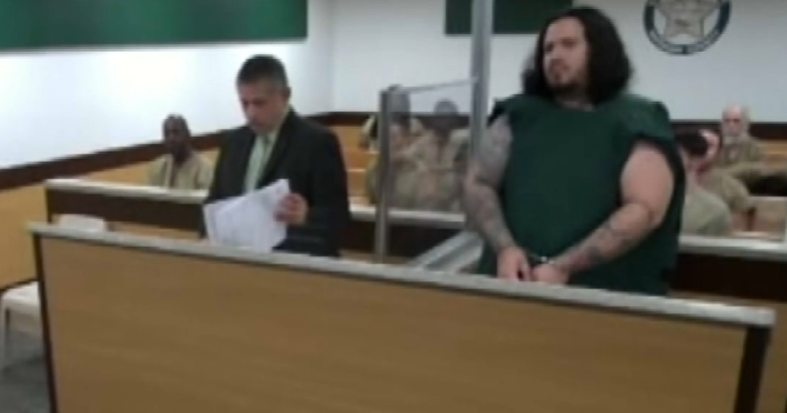Schwarzenegger Promise To Blow Up Boxes Fizzled
SACRAMENTO (AP) — It was the kind of over-the-top pledge Californians had come to expect from the Hollywood action star they had elevated to the governor's office in their unprecedented political revolt: Arnold Schwarzenegger wouldn't just rearrange the boxes of a bloated state bureaucracy, he would "blow them up."
The "Governator," who rode voter discontent into office during the 2003 recall election, said he would streamline a wasteful government to trim its cost, consolidate departments with overlapping responsibilities and eliminate unneeded boards and commissions.
As Schwarzenegger prepares to leave office in January, most of the boxes survive. Some have been rearranged, some have expanded, and at least one restructuring has been criticized for causing more harm than good.
"Every governor proposes moving boxes around to reorganize government. I don't want to move the boxes around; I want to blow them up," he said in his first State of the State address in January 2004. "We have multiple departments with overlapping responsibilities. I say consolidate them. We have boards and commissions that serve no pressing public need. I say abolish them."
He ordered a study -- later named the California Performance Review -- which issued recommendations in August 2004 that would have been the largest reorganization of state government since the 1960s.
The performance review proposed consolidating 11 agencies and 79 departments into 11 major departments while eliminating 12,000 state jobs. It said 117 of the 339 boards and commissions it examined should be eliminated to save $34 million and 1,153 jobs, many paying more than $100,000 a year.
"No one paid by the state should make $100,000 a year for only meeting twice a month," Schwarzenegger said in his January 2005 State of the State address. Yet he continued appointing members to many of those same boards, using the appointments as every governor before him had -- to reward termed-out lawmakers who had supported his proposals.
Schwarzenegger targeted 88 of the boards and commissions in a January 2005 report. Yet by the time the report was issued, Schwarzenegger was already moving on to other priorities and into a phase of confrontation with lawmakers.
A month later, he formally withdrew his reorganization plan, saying in a letter that "I have concluded that this proposal will benefit from further review." His office counts 34 boards and commissions that were eliminated or consolidated during his administration, though not all were as a result of his efforts.
Schwarzenegger could have used "the power of the bully pulpit and his herculean appeal" to push through reforms that had widespread voter support, said George Passantino, who helped guide the performance review as a consultant with the Reason Foundation, a Republican-oriented think tank.
"Only the governor can say whether this was a sincere effort or more showmanship," said Passantino, now managing partner of a public affairs firm in Palmdale. "At the time, I believed it was very, very sincere. The enthusiasm was palpable."
Schwarzenegger never resubmitted the reorganization plan, concentrating instead on an end-run around the Legislature with a hodgepodge of ballot initiatives for a 2005 special election. Voters rejected all four of his proposed reforms, which would have extended the time it took teachers to gain tenure, made it harder for public employee unions to collect dues, limited state spending and implemented redistricting reform.
"He comes into office as an outsider saying 'I'm going to blow up the boxes,' and he gets to Sacramento and he realizes that the Legislature is the biggest box. The process itself is the box. So to get anything done, he had to blow up the political process," said Susan Kennedy, a Democrat who Schwarzenegger hired as his chief of staff after he was trounced in the special election. "He turned his attention to big reform and changing that."
His biggest change was consolidating the adult and juvenile prison systems in 2005.
The administration had hoped the streamlined agency would reduce the number of parolees who quickly return to prison, rein in its runaway budget, improve inmate medical care and end abuses of juvenile offenders.
Yet critics say the decision backfired by creating a behemoth too big to manage.
The Little Hoover Commission, which investigates government operations, said ongoing problems with adult prisons quickly overshadowed the juvenile institutions. It has recommended separating oversight of juvenile offenders, who are housed in a combination of county and state lockups, from what became the Department of Corrections and Rehabilitation.
"The reforms committed to have not materialized," commission chairman Daniel Hancock said at a November hearing on whether the corrections consolidation has worked. "Hoped-for streamlining has not occurred. Five years later, prisons remain overcrowded, recidivism is still high, and rehabilitation programs have fallen to budget cuts."
The Republican governor eventually helped persuade voters to create an open ballot primary election and give an independent commission, instead of lawmakers themselves, the power to draw legislative districts. Robert Stern, president of the Center for Governmental Studies in Los Angeles, agreed with Schwarzenegger that those changes will send more moderate legislators to Sacramento and perhaps produce a more bipartisan atmosphere in the Capitol.
Stern said Schwarzenegger ran into a bureaucratic morass in which most boards and commissions have their own constituencies that wanted to thwart elimination or consolidation.
"The legislators weren't going to give up that patronage," Stern said. "That's the biggest abuse in my mind."
Schwarzenegger tried again in 2009 with a scaled-down list of 18 proposals to streamline government. The state finally eliminated the California Integrated Waste Management Board, which had been a soft landing zone for former lawmakers, and consolidated boards dealing with geologists and companies that dispense hearing aids. It also restructured the state's information technology systems.
"There's still a lot of boards and commissions where they make more than $100,000 and they meet once or twice a month," said state Sen. Tony Strickland, a Republican from Thousand Oaks who carried the bill eliminating the waste management board. "I think those are the things people are frustrated about when we're facing a $25 billion budget deficit. Those things should be the first thing on the chopping block."
Doing away with the five-member waste management board saved the state $2 million annually even though Schwarzenegger named the board's chairwoman to head the new Department of Resources, Recycling and Recovery, said Mark Newton, director of resources and environmental protection for the bipartisan Legislative Analyst's Office.
The savings came mostly from board members' $132,178 salaries and the cost of providing them with individual staffs, offices and expenses, Newton said. It didn't help the state's general fund -- where the budget deficit resides -- because the board's costs were paid with trash and recycling fees.
Stuart Drown, executive director of the Little Hoover Commission, said the state also is seeing substantial savings from coordinating its information technology services across state agencies.
The Office of the State Chief Information Officer estimates it has saved $400 million over three years and shaved another $100 million from the $3 billion the state spends annually on information technology. The savings have come from shutting down some buildings, renegotiating consulting, computer and telecommunications contracts, and coordinating projects so they benefit multiple state agencies.
(© Copyright 2010 The Associated Press. All Rights Reserved. This material may not be published, broadcast, rewritten or redistributed.)







